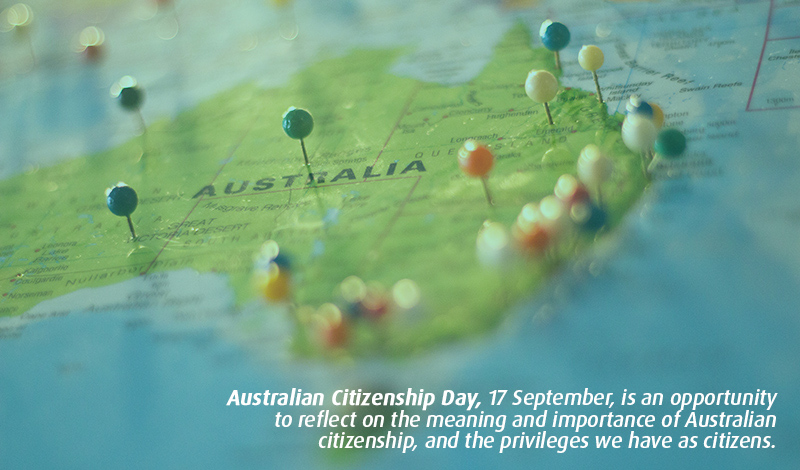Between 1 July 2019 and 30 June 2020, a total of 204,817 people representing over 200 different nationalities were awarded an Australian Citizenship*.
Those who take the Australian Citizenship test require an understanding of Australia’s people, history, beliefs, rights, liberties and laws, but in order to complete the test they must also know how to read and write in English.

Language is a barrier for many refugees living in Victoria, and we know that it not only inhibits them from taking the Citizenship test but also from finding employment, undertaking study and communicating effectively with others in the community, including service agencies and GPs.
CatholicCare currently runs two Citizenship group programs for refugees, both of which were moved to Zoom sessions as a result of the Covid lockdown restrictions.
“Most participants were not educated on how to use Zoom, so it was a lot of work to get it up and running,” says Gula Bezhan, CatholicCare Settlement Support Worker.
“Participants learn new vocabulary in the sessions and are asked to define words and their meanings, like “human rights”, by writing their answers down on paper in English.”
These weekly online group sessions have come to life through a partnership with Springvale Learning & Activities Centre, and each group has a maximum of 12 attendees to give all participants the opportunity to converse and ask questions. The participants also have a WhatsApp group where they can access recordings of the weekly sessions and other helpful information like definitions of Citizenship-relevant phrases.
“Even though Citizenship tests have stopped [due to Covid], there are more refugees eager to join our groups. Participants who don’t have access to a laptop or who are unable to join our Zoom groups can access the recorded sessions later through WhatsApp, and others will re-watch the recordings to practice their writing skills,” says Gula.
As an added benefit, the Citizenship groups enable the refugees to connect with one another - which has been particularly welcomed during the pandemic. The sessions also provide an opportunity to ensure participants are up to date on topical issues such as Covid, and how they can access support if they or their family are in need.
“Most of the participants are parents, so we run the groups through the school term,” says Gula. “Our participants who have passed the [Citizenship] test are very grateful to us and they have sometimes very generously brought in homemade food to say thank you. One woman was so happy, she is now an Australian citizen and has her driver’s license because of CatholicCare, and she said it has changed her life. It is beautiful to hear that.”
Liz Gellel | Communications Coordinator
*Australian citizenship statistics, Australian Government
Read more: